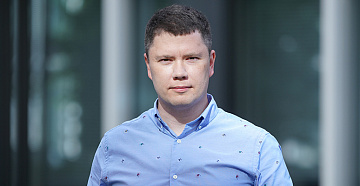How 2020 changed the Russian market of IT outsourcing
The coronavirus pandemic altered the economic and business environment in Russia. These changes also affected the market of IT outsourcing. Service providers and vendors had to find a more flexible approach to their customers, and customers began to contact their service partners not only to get the "manpower", but also to seek the expert opinions.
In this context, the service providers had to learn how to address non-standard tasks.
Following the transition to remote work, many companies brought their offices online, which required new solutions from technical support to expand the bandwidth of communication channels, fine-tune quality of service mechanisms and introduce powerful remote access tools. There is a stronger trend towards transitioning to the cloud. The IT perimeter of companies continued to "blur", so there were many additional and specific tasks in the area of information security. Most of them are likely to remain relevant in 2021, as more than a third of employers are not going to bring their employees back to the offices but will offer them instead a completely remote or hybrid work. I expect that there will be more demand for such services as setting up and supporting VPN channels, Next Generation Firewall, SIEM systems and investigating the security incidents.
Vendors have introduced more flexible service bundles.
At the end of 2020, Cisco offered Next Calendar Day (NCD), a new type of service contract which is an extended version of the well-known Smart Net Total Care. Under such NCD, the equipment can be replaced on the next calendar day. In some cases, it will most likely replace 8x5xNBD, a service bundle to provide equipment on the next business day after confirming the request. In other words, if the incident occurred on holidays, weekends or "non-working" days, such as those announced in the last spring, the customer had to wait for the start of a new working week and, amid the pandemic, this period could stretch indefinitely. The vendor quickly grasped the situation, offering a compromise solution priced closely to 8x5xNBD, but capable of addressing the issue more quickly. Despite the fact that no 2020-like lockdown is expected to repeat in Russia, this country has a tradition of long holidays (in January or May) when the speed of 8x5xNBD service will be insufficient. So far, there are no similar offers on the Russian market, but other vendors will most likely follow the example of Cisco.
Customers started to pay more attention to the skills and competencies of contractors and the quality of their services.
According to the analysts, in 2020, Russian companies cut their IT spending by 8.2%. However, this did not affect the market for services and technical support. Previous crises demonstrated that, in a difficult situation, businesses primarily seek to freeze their investments in future projects, while often increasing their expenditures on the use and maintenance of existing infrastructure so that it can operate longer and more efficiently.
At the same time, in the current situation, customers take a more sensible approach to selecting their service provider. They know exactly the level of required service and where they need it within the infrastructure, and they are not willing to overpay. However, the need for high-quality services is as present as ever, and it only gets stronger. As a result, most major companies hold competitive selection procedures with tough requirements for the contractors. In almost any competitive bidding, the businesses establish mandatory requirements for the contractors to have expert-level engineers among their staff, and more than half of the customers insist on a technical interview with specialists who will provide services for their infrastructure.
There are new expectations for collaboration with external service providers.
There is also an emerging demand on the market for a bundled service, where the contractor will not only maintain the infrastructure, but also help to develop it. Over the past year, STEP LOGIC has doubled the number of customers seeking an expert assessment of their plans to upgrade infrastructure or support its migration. To address these tasks, a service partner must have a broad industry expertise and many successful cases in its portfolio. This trend indicates that, in the coming years, the maturing Russian market of IT outsourcing will demand even more services of system integrators (seen as the main centres of competence).
Source: Comnews
